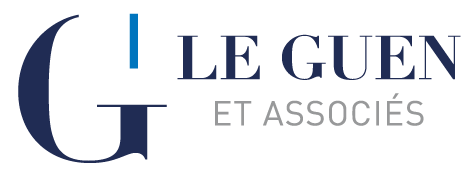Protecting your innovation by means of patents
LE GUEN & ASSOCIES, expert in industrial and intellectual property, assists you with the key stages of assessing patentability of your inventions, drafting your patent applications and representing you in prosecutions before the offices. Our multidisciplinary team places their technical and legal expertise at your disposal throughout our collaboration, thereby enabling you to acquire and defend your rights in relation to innovations.
What is a patent?
A patent is a property right which protects a technical invention. It grants an exclusive right to prohibit any use by a third party without the consent of the right owner. It is granted for a period of 20 years, though this can be extended by way of a Supplementary Protection Certificate in the case of medicinal products.
Patent law is governed by the French Intellectual Property Code in France, and by the European Patent Convention in Europe.
Our mission is to assist you and represent you in all relevant matters and to offer you appropriate strategies for the management of your patent portfolios from both technical and legal perspectives. And, when the circumstances so require, our counsel-enginerres help with our clients’ cases in oral proceedings at the European Patent Office in The Hague, as well as in Munich, where LE GUEN & ASSOCIÉS has had a presence for 25 years.
Patent protection consists in ensuring that you benefit from a right to prohibit third parties from manufacturing, importing, exporting, selling, offering for sale, using or trans-shipping your technical inventions. This involves several steps.
Analysis prior to the filing of a patent application
Even though the inventors are generally highly knowledgeable about existing technologies in their field of activity, it may be necessary to carry out a prior art search before a patent application is filed.
This is justified in particular when there may be doubts about the patentability of the invention, in particular in terms of novelty. An additional advantage that you may derive from such a search is knowledge of equivalent technologies and/or products which may themselves be protected by patents. If patented prior art is found, the resulting rights may prevent you from freely exploiting the invention.
We offer to hold meetings / discussions with the inventors prior to the filing of a patent application in order to determine whether such a search is necessary.
Filing strategy
A patent application consists of an application form, a detailed description of the invention that is generally accompanied by drawings, and claims. The invention must be sufficiently disclosed for a person skilled in the art, assisted by his or her ordinary practitioner’s skills, to be able to carry it out.
The filing strategy (whether for a national filing, a filing at the European Patent Office or the filing of an international application) is evaluated and drawn up on a case-by-case basis, taking account of objective criteria such as detectability of your invention, locations of your R&D sites, locations of your production sites and distribution network, locations where your competitors are based, the business potential of your invention, and the targeted markets, etc.
We work with you to determine the best protection strategy. Our technical experience means that we can help you to ensure that the disclosure of the invention is sufficiently complete to comply with the relevant requirements for patents.
Search Report and Notifications from the Offices
The offices examine both substantive and formal aspects of patent applications. The offices issue search reports and various office actions. As representatives, we act as the intermediary in all communications with the offices and take the steps necessary to ensure that the procedures run smoothly.
In France, nine to ten months after the filing of the patent application, the I.N.P.I. issues a preliminary search report citing the most relevant documents in relation to the claimed invention. The I.N.P.I. provides a written opinion which explains to what extent the prior art revealed by the search does or does not affect the patentability of the invention. Generally, observations showing that the prior art cited is not relevant must be presented to the I.N.P.I. in response to the preliminary search report, sometimes accompanied by amended claims which better delimit the invention vis-à-vis this prior art.
Throughout these procedures, we ensure that the scope of protection meets your needs.
Publications
Patent applications are typically published 18 months after they have been filed. Patents are published when they are granted.
We send you copies of the publications of your patent applications and of your patents free of charge.
Research report
Around nine months after the filing, the I.N.P.I. issues a search report which cites the closest documents to the invention which may affect its patentability.
Generally, observations showing that the cited documents are not relevant must be presented to the I.N.P.I., sometimes accompanied by a new set of claims which better delimits the invention vis-à-vis these documents.
We ensure that the scope of protection following the search report matches your needs.
Valuation of your patents
We assist you in valuing and assessing your patents on the basis of methods and criteria recognised by the case-law and the tax authorities.
Defending your patent rights
We advise and assist you at pre-litigation stage and in contentious proceedings, in particular in relation to detailed description (saisie-contrefaçon)

